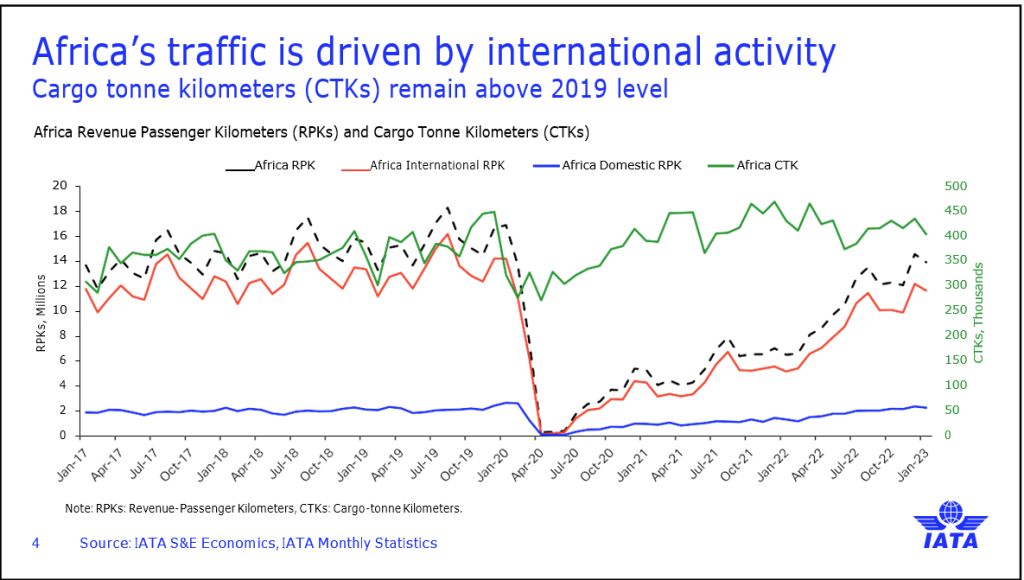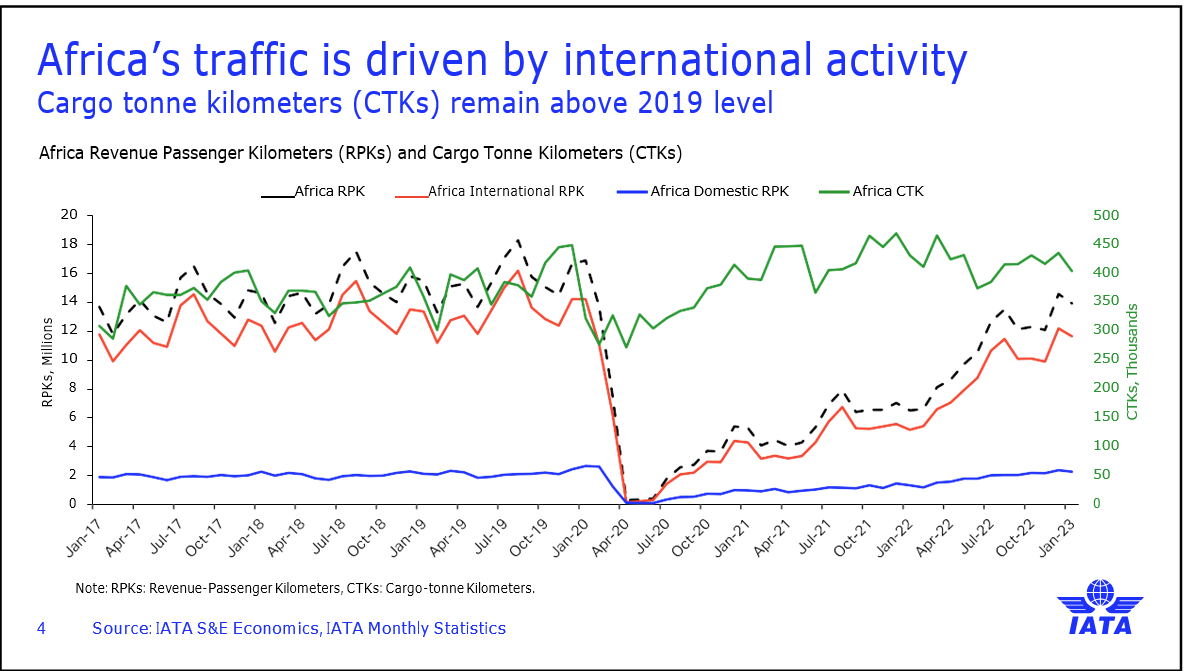CliqJets Consulting
Fostering Growth, Innovation, and Sustainability in Airline Operations

Africa, a continent of vast landscapes, rich cultures, and burgeoning economies, has an air travel scenario that stands out globally. Surprisingly, international passenger traffic in Africa accounts for over 80% of the total traffic. This dominance of international routes has both its reasons and its implications for the continent’s aviation industry. While international connectivity brings economic benefits, it also underscores the challenges faced by domestic air travel within Africa.
Why Does International Traffic Dominate?
Several factors contribute to the disproportionate emphasis on international flights over domestic routes in Africa:
- Historical Routes: Many African airlines were initially set up to serve international routes, connecting the continent with major global cities. These historical ties and partnerships have continued to shape the focus of these airlines.
- Economic Hubs: The concentration of business hubs and economic activity in certain cities makes them attractive destinations for international airlines. Cities like Johannesburg, Nairobi, and Lagos have become significant international gateways.
- Limited Domestic Demand: A significant portion of Africa’s population resides in rural areas with limited air travel needs. Moreover, the lack of efficient ground transportation infrastructure in some regions reduces the demand for domestic flights.
- Regulatory and Infrastructure Challenges: Inconsistent regulatory frameworks and inadequate infrastructure can hinder the growth of domestic air travel. This makes it challenging for airlines to operate cost-effectively within the continent.
- Insecurity: the dominant international air traffic underscores a hesitancy among locals to travel within their countries due to safety concerns, thereby amplifying the dominance of international routes.
Unlocking Potential: Improving Africa’s Domestic Passenger Traffic
While international connectivity is vital for economic growth and global integration, nurturing domestic air travel is equally crucial. Here are some strategies to enhance domestic passenger traffic in Africa:
- Investment in Infrastructure: Developing and upgrading airport facilities across the continent can encourage more airlines to operate domestically. Improved facilities can enhance the passenger experience and reduce operational costs for airlines.
- Promotion of Regional Tourism: Collaborative efforts among African countries to promote regional tourism can stimulate domestic air travel. Creating attractive travel packages and promoting cultural exchanges can make domestic destinations more appealing.
- Subsidies and Incentives: Governments can consider providing subsidies or incentives to airlines operating on less profitable domestic routes. This can help offset some of the operational costs and encourage airlines to expand their domestic networks.
- Streamlined Regulations: Harmonizing aviation regulations across African countries can facilitate smoother operations for airlines. Simplifying procedures for obtaining permits and ensuring consistent safety standards can attract more players to the domestic market.
- Public Awareness Campaigns: Raising awareness about the benefits of air travel and addressing misconceptions can stimulate demand for domestic flights. Educating the public about the convenience, safety, and affordability of air travel can help change perceptions.
Conclusion
While international passenger traffic continues to dominate Africa’s air travel landscape, the potential for growth in domestic traffic remains untapped. By addressing infrastructure challenges, promoting regional tourism, and implementing supportive policies, African countries can unlock opportunities for domestic air travel development. As the continent strives for economic growth and integration, a balanced focus on both international and domestic air connectivity will be pivotal in shaping its aviation future.
- Fixing Aviation Surety Bonds in Nigeria
- When Safety Meets the Clock: Why Airlines Can’t Afford to Gamble
- NSIB Hosts 12th BAGAIA Commission Meeting in Abuja
- ✈️ How Commercial Airlines Boost Nigeria’s GDP
- Error Management Techniques in Flight Operations
Proudly powered by WordPress






0 Comments